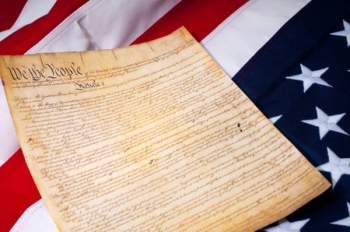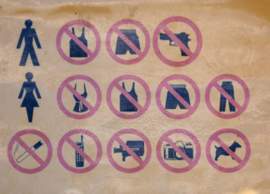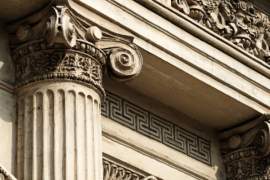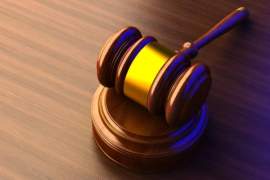
Who Wrote the Constitution?

Popular In Constitution
Purpose Of Lifetime Appointment And Pros And Cons Enumerated Powers Bicameral Legislature Background Article 3 Of The Constitution We The People 1st Amendment Who Wrote The Constitution Judicial Review Equal Protection Clause 5th Amendment 10th Amendment Three Fifths Compromise
The signers of the Constitution are considered to be a collection of the greatest political and philosophical minds in the United States. The very thought of attendees of the Constitutional Convention - George Washington, John Adams, and Ben Franklin, just to name a few - collected in a single room while deciding the fate of a new country is staggering.
The brilliance of the signers of the Constitution is only second to the bravery displayed by them. Unwilling to recreate the tyranny of the British monarchy and refusing to indulge in the reactionary whims of the Articles of Confederation, the Founding Fathers both authored and promulgated a political document that is considered to be the forefront of revolutionary, democratic political thought. Comprised of Federalists, nationalists, and patriots, the signers of the Constitution had not only witnessed the overthrowing of a tyrannical ruling body, but many of them also had a direct hand in this process.
· George Washington, the appointed head of the Constitutional Convention, was the leader of the Continental Army responsible for defeating the British troops, and as a result, removing the presence of King George and the British monarchy as the ruling body of the thirteen colonies, which soon-after became the United States.
· James Madison is credited as not only a signer of the Constitution, but also one of its primary authors. However, James Madison’s career as a political author began prior to his authorship of the Constitution. Along with Alexander Hamilton and John Jay, all three men are credited with the authorship of the Federalist Papers.
· Alexander Hamilton was not only a renowned political thinker responsible for the primary authorship of the FederalistPapers, but also served as an Assistant General under George Washington in the Revolutionary War.
· Benjamin Franklin was a respected author and Federalist who, aside from his political acumen, is considered to be anaccomplished inventor, credited with the invention of the lightning rod and bifocals.
· Other noteworthy signers of the Constitution were William Paterson, a delegate from New Jersey who was responsible for the creation of the New Jersey Plan and Edmund Randolph, a delegate from Virginia who was responsible for the creation of the Virginia Plan.
· George Mason, a delegate from Virginia, is credited alongside James Madison with the passing of the Bill of Rights. He is renowned for his refusal to sign the Constitution due to the absence of a clause that would allow for amendments - coincidentally, this clause would later be defined as the Bill of Rights. He, alongside his fellow Virginia delegates, had unanimously abstained from signing the Constitution until 5 months following its ratification. The State of Rhode Island joined in that abstaining as well.
Those who were not present as signers of the Constitution were Thomas Jefferson and John Adams. They were both in Europe at the time on diplomatic assignments.
NEXT: Apportionment Equal Proportions Method




















